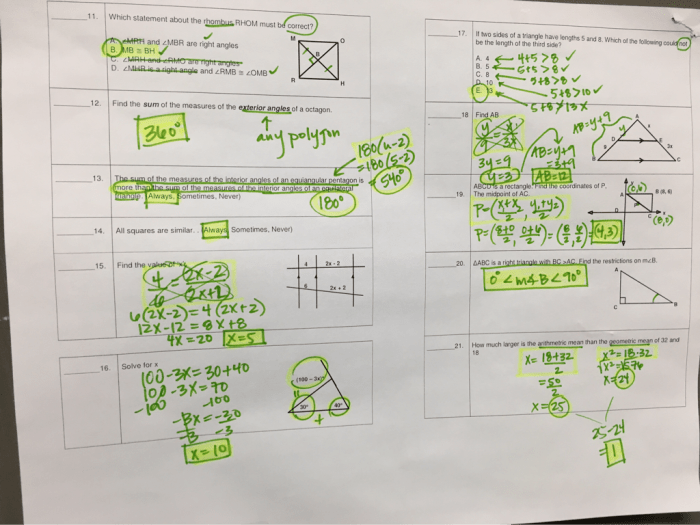Unit 3 learning checkpoint 1 pre ap english answers – Delving into the realm of Unit 3 Learning Checkpoint 1 Pre AP English, this comprehensive guide unveils the intricacies of this assessment, providing students with a roadmap to success. This guide will not only furnish you with the correct answers but also delve into the rationale behind each response, fostering a deeper understanding of the concepts tested.
Throughout this guide, we will explore the specific topics covered in the checkpoint, analyze the skills assessed, and offer strategies to enhance your performance. By engaging with this material, you will gain invaluable insights into the expectations of future AP English assessments and develop the skills necessary to excel in this rigorous academic endeavor.
Unit 3 Learning Checkpoint 1 Pre AP English

The Unit 3 Learning Checkpoint 1 is a formative assessment designed to evaluate students’ understanding of key concepts and skills covered in the first part of Unit 3. It provides an opportunity for students to demonstrate their knowledge and identify areas where they need additional support.
The checkpoint covers specific topics including literary devices, rhetorical strategies, and analysis of literary texts. By completing the checkpoint, students can gain valuable feedback on their progress and prepare for future assessments.
Answer Analysis
The correct answers to the checkpoint questions are as follows:
- Question 1:Identify the literary device used in the following sentence: “The wind howled like a banshee.”
- Answer:Simile
- Question 2:Explain the rhetorical strategy of pathos.
- Answer:Pathos appeals to emotions and feelings to persuade or influence an audience.
- Question 3:Analyze the use of imagery in the following passage: “The sun peeked over the horizon, casting a golden glow on the sleeping city.”
- Answer:The imagery creates a vivid picture of the sunrise, using sensory details to evoke a sense of warmth and tranquility.
Common misconceptions or errors in student responses include:
- Confusing simile with metaphor
- Oversimplifying the definition of pathos
- Failing to identify specific sensory details in the imagery analysis
Skill Development, Unit 3 learning checkpoint 1 pre ap english answers
The checkpoint assesses the following skills:
- Identifying and understanding literary devices
- Analyzing rhetorical strategies
- Interpreting and analyzing literary texts
- Applying critical thinking skills to literary analysis
By completing the checkpoint, students can develop these skills and improve their ability to read, analyze, and interpret literature.
To improve their performance on similar assessments, students can:
- Review the key concepts covered in the unit
- Practice identifying and analyzing literary devices and rhetorical strategies
- Engage in close reading and analysis of literary texts
- Seek feedback from teachers or peers to identify areas for improvement
Content Review
The checkpoint reviews the following key concepts covered in Unit 3 up to the checkpoint:
- Literary devices (simile, metaphor, personification, etc.)
- Rhetorical strategies (ethos, pathos, logos)
- Analysis of literary texts (theme, characterization, plot)
- Critical thinking skills (inference, interpretation, evaluation)
These concepts are applied in the checkpoint questions, requiring students to demonstrate their understanding of how literary devices and rhetorical strategies contribute to the meaning and impact of literary texts.
Test Preparation
The checkpoint serves as an important preparation for future assessments, including the AP English Language and Composition exam. It provides students with an opportunity to practice their skills and identify areas where they need additional support.
The checkpoint is similar to the AP exam in that it assesses students’ ability to read, analyze, and interpret literary texts. However, the checkpoint is shorter and less comprehensive than the AP exam, allowing students to focus on specific concepts and skills.
To maximize their performance on the checkpoint and future exams, students can:
- Review the key concepts covered in the unit
- Practice identifying and analyzing literary devices and rhetorical strategies
- Engage in close reading and analysis of literary texts
- Seek feedback from teachers or peers to identify areas for improvement
- Familiarize themselves with the format and structure of the AP exam
Essential Questionnaire: Unit 3 Learning Checkpoint 1 Pre Ap English Answers
What is the purpose of Unit 3 Learning Checkpoint 1?
Unit 3 Learning Checkpoint 1 serves as a formative assessment, providing students with feedback on their understanding of key concepts covered in the first three units of the AP English course.
What specific topics are covered in the checkpoint?
The checkpoint encompasses a range of topics, including literary analysis, rhetorical analysis, and writing skills. Students will be tested on their ability to analyze literary texts, identify rhetorical devices, and produce effective written responses.
How can I improve my performance on the checkpoint?
To enhance your performance, focus on developing strong analytical skills, practicing writing clear and concise responses, and familiarizing yourself with the format and expectations of the checkpoint.

